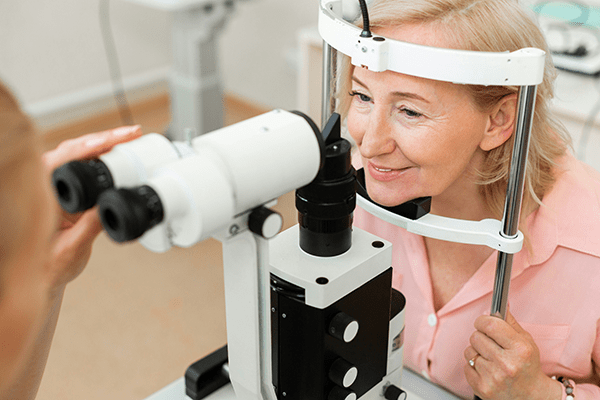Cataracts Are a Common Eye Condition
Cataracts are cloudy areas that form in the lens of the eye, which is normally transparent, and more than 20 million Americans are currently affected by them. They are most common in adults over 40 years old and usually develop over several years. Surgery is generally recommended once vision is impaired to a degree that people have trouble reading, driving and recognizing faces. Today the surgery is a quick, safe procedure, replacing the cloudy lens with a clear plastic one.
Doctors say there are things people can do to reduce their risk of developing cataracts with quitting smoking at the top of that list. The U.S. Food and Drug Administration reports people who smoke are two to three times more likely to develop cataracts. A healthy diet of fresh fruits, vegetables, whole grains, good quality fats (avocados, olive oil, and omega oils) and lean animal-sourced or plant-sourced proteins additionally reduces the risk of cataracts.
Maintaining a healthy weight is important as obesity increases your risk of developing type 2 diabetes, which is a risk factor for cataracts. Other ways to reduce your risk include wearing UV blocking sunglasses when in the sunlight and getting at least 7 hours of sleep each night. The risk for cataracts also increases with age, family history, and a history of eye inflammation or injury.
If you are not ready for surgery yet, doctors say stronger glasses and brighter lights may help. Keep up with regular eye exams and renew your eyeglass prescription as needed. Wear sunglasses in the sun and avoid night driving. As your cataracts continue to develop and eyesight worsens, at some point you will most likely need surgery.
At MorningStar at North Ridge, our goal is to provide the best Alzheimer’s care in Albuquerque, and our community was designed from the ground up to provide a safe, supportive and loving environment. As dementia care specialists, we consider it our calling, and privilege to walk alongside the memory-impaired and their families on this unexpected journey. Please visit our website for more information.
This post is intended for informational purposes only. Please contact your health care provider with any questions or concerns you have regarding your eyesight.
MorningStar has considered it a privilege and responsibility to “cast a new light” on senior living, inspired and empowered by our unique mission: to honor, to value, to invest. Our passionate commitment to serving seniors has proudly earned us a reputation for satisfaction that is second to none. Contact us to learn more about the finest dementia care in Albuquerque.
Sources:medicalnewstoday.com/articles/157510,fda.gov/tobacco-products/health-effects-tobacco-use/how-smoking-can-contribute-vision-loss-and-blindness#3,


